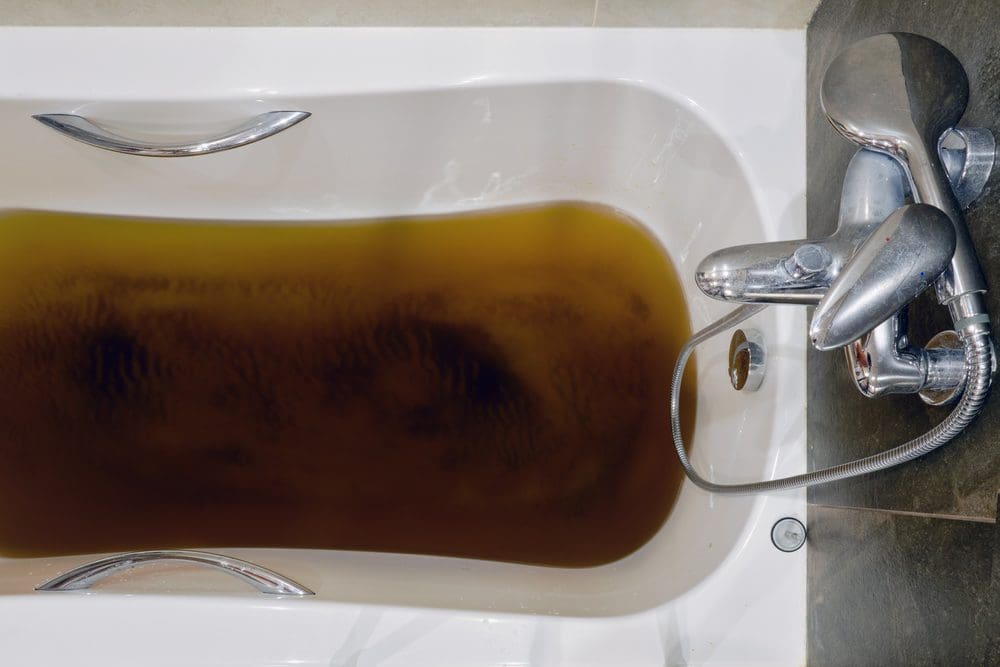Recommended Reasons Behind Drainage Backflow in the Bathtub
EstimateThey are making several good pointers on Why is Sewage Backing Up Into My Bathtub? as a whole in the article underneath.

Sewage back-up in the bath tub can be a distressing and unhygienic issue for any kind of property owner. Not just is it inconvenient, however it likewise poses serious health risks and suggests underlying issues with the plumbing system. Comprehending why sewage is turning up with the bathtub is crucial for taking proper action to address the problem effectively.
Introduction to the Issue
Recognizing the Problem
When sewage draws back up into the bathtub, it's a clear indicator of a problem with the water drainage system. The wastewater that should be streaming away from your home is instead locating its way back into your space, which can cause significant damages and carcinogen.
Potential Reasons
A number of aspects can contribute to sewage backup in the bathtub. From clogs in the drain line to concerns with the plumbing facilities, determining the origin is necessary for finding an option.
Common Factors for Sewage Backup
Clogs in the Drain Line
One of one of the most usual root causes of sewage backup is a clog in the sewage system line. This can happen due to the accumulation of particles, oil, or foreign objects in the pipes, preventing appropriate circulation and creating sewage to back up right into your bath tub.
Tree Origin Intrusion
Tree roots looking for dampness and nutrients can penetrate sewage system lines with little splits or joints. In time, these origins can grow and increase, creating substantial damage to the pipes and leading to sewer backup problems.
Aging Framework
Older homes may have dated plumbing systems that are a lot more prone to rust, cracks, and damage. As pipelines age, they end up being extra vulnerable to leaks and obstructions, boosting the chance of sewage backup cases.
Heavy Rainfall or Flooding
Throughout periods of heavy rainfall or flooding, the sewer system may come to be overwhelmed with excess water, triggering back-ups and overflows. This can result in sewage backing up right into tubs and other fixtures inside the home.
Health Dangers Associated with Sewer Backup
Contamination of Water System
Sewage backup can pollute the supply of water in your home, presenting a serious health threat to you and your household. Exposure to contaminated water can cause gastrointestinal issues, skin infections, and other diseases.
Spread of Illness
Sewage includes dangerous germs, viruses, and bloodsuckers that can create a series of illness, including liver disease, cholera, and gastroenteritis. Entering contact with sewer or contaminated surface areas places you in jeopardy of infection.
Mold and mildew Development
Moisture from sewer backup can create optimal conditions for mold and mildew growth in your house. Mold and mildew spores can aggravate respiratory system problems and trigger allergies in sensitive individuals, making punctual cleanup essential.
Signs of Sewage Back-up
Foul Odors
Unpleasant smells emanating from drains pipes or fixtures, especially in the restroom, might show sewer backup concerns. These smells are usually solid and persistent, signaling a problem that requires prompt focus.
Slow Draining Fixtures
Bath tubs, sinks, and bathrooms that drain gradually or otherwise whatsoever could be experiencing sewage backup. If several components are influenced all at once, it's likely that the concern stems from an usual factor, such as the major sewer line.
Gurgling Sounds
Weird gurgling or bubbling noises coming from drains when water is running in other places in the house are indicative of air entraped in the plumbing system. This air accumulation can result from sewer backup and should be explored immediately.
Immediate Actions to Take
Turning Off Water
In case of sewage back-up, it's necessary to switch off the water system to prevent further contamination and damages. Find the main water shutoff valve in your house and shut it off up until the issue can be resolved.
Getting In Touch With a Specialist Plumber
Dealing with sewage backup is not a DIY work. Get in touch with a licensed plumber with experience in taking care of sewage-related concerns to assess the scenario and perform necessary repair services or cleanups.
Avoiding Contact with Contaminated Water
Until the sewage back-up is fixed, avoid contact with infected water to avoid the spread of bacteria and microorganisms. Use protective equipment if you should remain in the damaged area and wash your hands extensively later.
Preventive Measures
Routine Maintenance of Sewer Lines
Schedule normal examinations and maintenance of your sewage system lines to recognize and attend to potential concerns prior to they intensify right into significant troubles. This can include cleaning debris, evaluating for tree root intrusion, and repairing any kind of broken pipelines.
Setting Up Bayou Shutoffs
Think about mounting bayou valves in your plumbing system to stop sewage from flowing back right into your home throughout periods of heavy rainfall or flooding. These shutoffs automatically close when water starts backing up, protecting your property from contamination.
Proper Disposal of Home Waste
Prevent purging anything besides toilet paper and human waste down the bathroom to avoid blockages and clogs in the sewage system line. Dispose of oil, oil, and various other house chemicals correctly to reduce the risk of plumbing issues.
Tidying up After Sewage Backup
Sanitation Procedures
Completely decontaminate and sanitize influenced areas after sewage backup to eliminate damaging germs and protect against mold and mildew development. Usage proper cleansing products and protective gear to make certain risk-free and reliable clean-up.
Repair of Influenced Locations
Fix any type of damages to floor covering, walls, or components caused by sewage back-up. Depending upon the level of the damage, you may require to replace carpeting, drywall, or various other materials to restore your home to its pre-loss problem.
Why Is Water Backing Up in My Bathtub When I Flush My Toilet?
What to do about a sewer line clog
First, don’t bother with plunging. No amount of plunging will dislodge the clog in a sewer line. The clog is too far away. Plungers are for clogs in the toilet itself, not the sewer line. Plus, the most likely causes of a sewer clog are:
Tree roots Flushed toys or feminine products Grease buildup Those items don’t move easily. And in the case of tree roots, the roots need to be cut out of the pipe and the pipe will need to be repaired.
You’ll need a closet auger. A closet auger is a type of plumber’s snake with a protective cover to keep from scratching the delicate porcelain toilet. If the clog is further down, you may need to remove the toilet or use one of your cleanouts to get to the clog.
We also recommend doing a video inspection of the drain to ensure that the cause of the clog has been completely removed. Otherwise, you could have the same problem again in a few days or weeks.
https://mspplumbingheatingair.com/blog/why-is-water-backing-up-in-my-bathtub-when-i-flush-my-toilet

I ran across that post on Why is Sewage Backing Up Into My Bathtub? when surfing around the web. Don't hesitate to take the opportunity to promote this page if you enjoyed reading it. Thanks for going through it.
Click Here